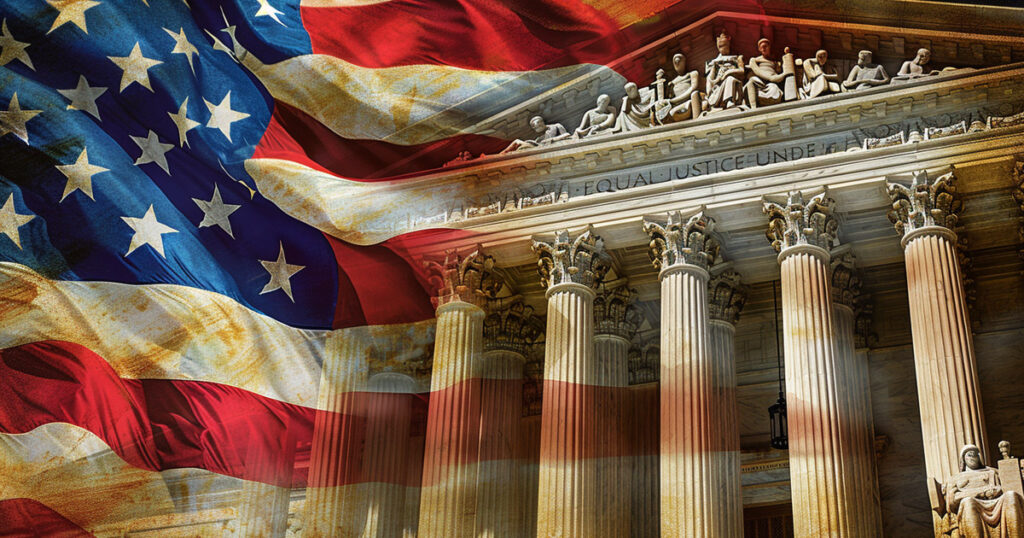
Economist Timothy Peterson said the U.S. Supreme Court’s decision to overturn Chevron will prevent the SEC from acting as a “automatic subject expert” on crypto on June 28.
The Chevron Doctrine has its origins in a 1984 case entitled Chevron v. Natural Resources Defense Council, which created a test for determining when U.S. federal courts must defer to agency interpretations of laws and statutes.
Impact on SEC Authority
According to Peterson, the decision to overturn the Chevron Doctrine limits the SEC’s “unilateral interpretive power” over Bitcoin.
Peterson wrote:
“This is the BIGGEST win for Bitcoin. Far more important than any case or law.”
He claimed that the decision requires the courts to scrutinize the SEC’s anti-crypto stance. The change could lead to fairer regulation and a more balanced legal landscape, including reducing the ability of SEC staff to define assets as securities.
FOX Business reporter Eleanor Terrett said the end of Chevron does not entirely eliminate the SEC’s ability to take enforcement action, but it does open up the question of whether Congress allowed the SEC authority to regulate crypto as security.
Terrett said Chevron’s end could impact the SEC’s case against Consensys and its claim that certain tokens are securities. She noted:
“The SEC’s assertion that Consensys is an unregistered broker-dealer engaged in the offering and sale of unregistered securities [may have] in the eyes of a judge, less serious than [before].
In January, attorney Paul Clement presented a brief in Loper Bright Enterprises vs. Raimondo – a case that led to the destruction of Chevron on June 28.
He called crypto a “concrete example” of gridlock regarding Chevron and claimed that Congress has failed to address crypto because agencies can claim authority over such matters. He implicitly referred to the SEC and its chairman Gary Gensler, stating:
“There’s an agency head out there who thinks… he’s going to wave his wand and he’s going to say the words ‘investment contract’ are ambiguous, and that’s going to confuse all this. [his] regulatory framework.
He later stated that someone “is going to litigate whether crypto is an investment contract” among other issues, adding that Chevron’s overruling could “move things in the right direction” when it comes to handling such cases .
Chevron was destroyed in non-crypto business
The U.S. Supreme Court struck down Chevron on June 28 in two cases: Relentless Inc. against Dept. of Commerce and Loper Bright Enterprises v. Raimondo.
The New Civil Liberties Alliance (NCLA), responsible for the first case, said the decision means gaps and ambiguity in statutes no longer grant legal powers to agencies. The latest decision instead requires Article III courts to address these ambiguities.
In striking down the doctrine, Justice John Roberts said:
“The only way to ‘ensure that the law will not just change capriciously, but will develop in a principled and understandable way’ is to leave Chevron behind.”
The cases do not specifically relate to crypto or the SEC. However, the NCLA emphasized the far-reaching scope of the decision, noting that it prevents “any federal agency” from abusing deference and calling it “a critical reform whose full impact will emerge over time.”

